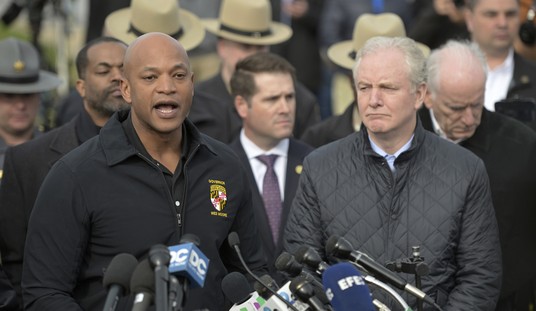Republican presidential candidate Donald Trump today defended his newly released immigration reform plan, which calls for the deportation of millions of undocumented workers in the United States, saying he’ll accomplish the objectives through “management.”
In a plan released earlier this month, Trump called for an end to birthright citizenship for the children of undocumented immigrants and for the deportation of undocumented workers. He did not offer more specifics as to how undocumented workers would be removed from the country or how much the plan would cost.
“It’s called management,” he said. “I’m going to get great people that know what they are doing.”
Republican Donald Trump is pulling away from the pack in the race for the party’s U.S. presidential nomination, widening his lead over his closest rivals in the past week, a Reuters/Ipsos poll showed on Friday…
Nearly 32 percent of Republicans surveyed online said they backed Trump, up from 24 percent a week earlier, the opinion poll found. Trump had nearly double the support of his closest competitor, former Florida Governor Jeb Bush, who got 16 percent. Retired neurosurgeon Ben Carson was third at 8 percent…
“He’s not taking any guff from anybody,” Dewey Stedman, 70, a Republican from East Wenatchee, Washington, said of the publicity-loving billionaire. “If you don’t have something in your brains, you’re not going to have billions of dollars.”
It’s been one month exactly since an ABC News/Washington Post poll found Trump with a wide, double-digit lead, with 24 percent support for the Republican nomination.
Fast forward to now, Trump isn’t seeing a slump in support at all. The most recent national poll from CNN/ORC shows Trump with 24 percent support again among registered Republican voters…
“Still Trump. He’s still the only one,” said Patricia Gregory, an 81-year-old Democrat from Florida, who is paying attention only to Trump out of all the candidates in the 2016 race.
“It’s gotten strong. Every time he opens his mouth it gets stronger,” Gregory said.
It was chum in the water: It was crack. You could talk to young people, old people, white people, black people, tall people, short people, purple people (a couple did seem purple), all of whom were there to see the biggest, most confounding political story to hit since Barack Obama. Donald J. Trump, the Queens-bred real estate magnate with the mansions and the germ phobias and the love of Jacqueline Bissett, had packed an Alabama football stadium on a sweltering Friday night; it was as if he hastily assembled this rally on a dare, a dare he appeared to be winning…
There was not much resembling a consensus among the people in the Trump line. They were from different backgrounds, had different priorities, carried different political agendas, and sometimes appeared to be from different planets all together. But there was one thing all of them had in common and couldn’t wait to tell you about: They were sick of all the bulls–t. They were sick of being talked to like they’re idiots. They might not be up on the policy papers or every specific detail of the Iran deal. But they can smell bulls–t.
They know Trump’s a bullsh–ter too, but for the right reason. He bulls–ts to cut through the bulls–t…
Few of the people in line could summon any specific policies Trump was advocating, other than “build the wall” and “Make America Great Again.” He’s a vessel, a receptacle, as has often been observed, for an inchoate rage. His wealth and celebrity are crucial parts of his political appeal. And he doesn’t even seem to want to be president all that badly.
A review of public polling, extensive interviews with a host of his supporters in two states and a new private survey that tracks voting records all point to the conclusion that Mr. Trump has built a broad, demographically and ideologically diverse coalition, constructed around personality, not substance, that bridges demographic and political divides. In doing so, he has effectively insulated himself from the consequences of startling statements that might instantly doom rival candidates.
In poll after poll of Republicans, Mr. Trump leads among women, despite having used terms like “fat pigs” and “disgusting animals” to denigrate some of them. He leads among evangelical Christians, despite saying he had never had a reason to ask God for forgiveness. He leads among moderates and college-educated voters, despite a populist and anti-immigrant message thought to resonate most with conservatives and less-affluent voters. He leads among the most frequent, likely voters, even though his appeal is greatest among those with little history of voting…
Tellingly, when asked to explain support for Mr. Trump in their own words, voters of varying backgrounds used much the same language, calling him “ballsy” and saying they admired that he “tells it like it is” and relished how he “isn’t politically correct.”
Trumpism, the data and interviews suggest, is an attitude, not an ideology.
But the worst fears of the Republican establishment, that Trump’s unapologetic condemnations of immigrants will scuttle their shot at retaking the White House, so far aren’t revealing themselves in polling…
Trump’s position among non-white voters improved, substantially, when you look at how he fared in a head-to-head match-up with Hillary Clinton. In a CNN/ORC poll conducted in late June, Clinton led Trump by 67 points among non-white voters. By the end of July, she led by 56 points. By mid-August, 49…
What’s more, in the most recent CNN/ORC polling Trump does better against Clinton with non-white voters than Jeb Bush… The net effect is that Clinton leads Trump by nine points among all respondents in CNN’s most recent poll, and Bush by eight. In late June, she led Bush by 13 and Trump by 25.
Via YouGov.

Earlier this month, we noted that Donald Trump’s polling surge and lead — only two weeks old at the time — tracked with the surges seen by Rick Perry and Newt Gingrich in the 2012 cycle. With another few weeks under his belt, we can update the chart in that post to show that Trump’s pattern no longer matches Perry and Gingrich.
That could change, of course. Trump’s about four or five days out from where Perry and Gingrich dropped off, but there haven’t been many polls recently.
It is also possible that it won’t change.

What remains to be seen is whether Mr. Trump will be able to sustain Friday’s clamor in Alabama, which will hold its primary on March 1. Former Senator Rick Santorum of Pennsylvania won the Republican primary here in 2012 and is again seeking the presidency, but many people here said they were reluctant to support a more traditional politician…
“When he gets in there, he’ll figure it out,” said Amanda Mancini, who said she had traveled from California to see Mr. Trump. “So we do have to trust him, but he has something that we can trust in. We can look at the Trump brand, we can look at what he’s done, and we can say that’s how he’s done everything.”…
“Hopefully, he’s going to sit there and say, ‘When I become elected president, what we’re going to do is we’re going to make the border a vacation spot, it’s going to cost you $25 for a permit, and then you get $50 for every confirmed kill,’” said Jim Sherota, 53, who works for a landscaping company. “That’d be one nice thing.”
–In his 1966 campaign for governor of California, Reagan popularized the so-called Republican 11th Commandment, stating, “Thou shalt not speak ill of a fellow Republican.” Calling his GOP opponents (or anyone for that matter) “losers,” “morons,” “dummies” or “idiots” would have been unthinkable for Reagan. Those words didn’t exist in his vocabulary—even for Democrats who called him names. He once wrote a note to us saying we had done “d— good,” not being able to bring himself to spell out the word “damn.” Meanness was not in Reagan’s soul…
–Above all else, Ronald Wilson Reagan was genial and mannerly. He treated others with respect and courtesy. He was a gentleman whose personal decency was exceptional. On the occasions where he disagreed with our opinions or points of view, he did so without sharp words or rebuke, often apologetically. Yes, his political rhetoric could be tough and partisan, but it was never vulgar or personal. Donald Trump would benefit from the light-hearted humor that Reagan used to advantage in his communication.
–In the 1980 presidential campaign, Reagan also said it was time to “make America great again.” But he did so while reflecting on what a wonderful country we live in, and that even amid the failure of our institutions, our nation’s promise of hope and opportunity stood out. It would have been unimaginable for Reagan to say, “Our country is going to hell,” as Trump regularly claims. Optimism permeated Reagan’s thinking, and we don’t see any evidence of Trump using the uplifting and aspirational language that was so dominant in Reagan’s communications.
If Trump’s poll numbers hold, it’s likely that rivals or their associated super-PACs will feel forced to release a barrage of attack ads against the man in front, spending precious resources far earlier than they’d expected. “The next step will be if these groups decide they have to take this guy down,” says the fund-raiser. “They’ll start focusing primary voters on the real Donald Trump with ads that say, ‘This guy is a total fraud.’ That could be highly damaging to him. But, unlike other troublemakers” — Herman Cain and Michele Bachmann, for example, both of whom briefly led some 2012 primary polls before collapsing under voter scrutiny — “Trump can say, ‘Screw it, I’m not dropping out.’”…
It’s also possible that a Trump who is losing would be more erratic than the one who is winning. “His numbers are going to come down, and then he’s going to panic,” a Trump friend told me. “He doesn’t believe it will ever happen. He has not confronted this in his mind,” says another conservative who knows Trump well. So, if you think Trump has been unpredictable now, just wait. “The things that have already come out of his mouth are so much worse than so many things that sunk Herman Cain and the other flavors of the month last time,” another Trump friend says. It’s not hard to imagine Trump launching a kamikaze mission against the candidates left standing…
When — if? — Trump withdraws from the campaign, he will no longer have a ready landing pad on television. (His Apprentice deal with NBC has been canceled, too.) This is a prospect that is likely terrifying for Trump — and should, in turn, be terrifying for Bush. In a recent phone call with a longtime friend who has been acting as an informal adviser, Trump warned: “If I’m going down, then Bush is going down with me. He’s not going to be president of the United States.”
Trump has also forced the highbrow to acknowledge that politics tends to thrive below the neck. Reporters and commentators are paid to take the political horse race seriously. Most of the race’s “events” do not make presidents. But a contest wins an audience. The media thrives off the political hype. Trump has not brought the show to American politics. He captures how much of our politics already is a show…
How could this be? So goes the primal scream of the GOP graybeards. Channeling that angst, George Will wrote that Trump is a “counterfeit Republican and no conservative.” Perot demonstrated, however, that large swaths of GOP voters would support someone who breaks with Republican orthodoxy. As many now forget, Perot supported abortion rights and opposed the first Gulf War. He also bucked Republicans more than Democrats with his opposition to NAFTA, and what he called the “giant sucking sound” of jobs going south to Mexico. Does that sound like a certain candidate today?…
Americans are not a two-party people, but rather a people with a two-party system. In most elections, the public is forced to choose the lesser of two evils. But occasionally outsiders will upset this unnatural order. By winning less than 3 percent of the vote in 2000, Ralph Nader likely made George W. Bush president…
Trump is not something new in American politics. He is American politics.
Via RCP.







Join the conversation as a VIP Member